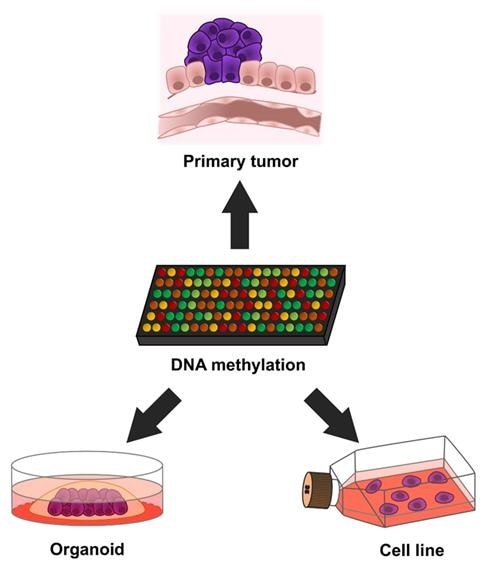In a new, breakthrough study, researchers have used three-dimensional (3D) models to disintegrate the DNA behavior of tumor cells, paving the way for innovative treatment for the disease.

Scientists have used 3D models to break down the DNA behavior of cancer cells, in a breakthrough new study, which could revolutionize treatment for the disease. Image Credit: Dr. Manel Esteller.
A team of researchers headed by Dr. Manel Esteller, Director of the Josep Carreras Leukaemia Research Institute (IJC), showed how 3D models (called organoids) could currently be used to create a characterization of the epigenetic fingerprint, or the DNA composition, of human cancer.
Published in the Epigenetics journal, the study verified the use of 3D samples to perform research on cancers that could deliver novel treatments in the field of oncology.
Frequently, promising cancer therapies fail when applied to patients in the real clinical setting. This occurs despite many of these new treatments demonstrating promising results at the preclinical stage in the lab. One explanation is that many of the tumor models used in early research phases are established cell lines that have been growing for many decades and in two dimension (2D) culture flasks.”
Dr Manel Esteller, Chairman, Department of Genetics, University of Barcelona
Esteller continued, “These cancer cells might not completely resemble the features of real tumors from patients that expand into three dimensions (3D). Very recently, it has been possible to grow cancers in the laboratories but respecting the 3D structure: these models are called ‘organoids’.”
We know very little about these cells and if they actually mimic the conformation of the tumor within the body, particularly the chemical behaviors (known as modifications) of DNA that are called epigenetics (“beyond the genetics”) such as DNA methylation.”
Dr Manel Esteller, Chairman, Department of Genetics, University of Barcelona
Esteller added, “What our article solves is this unmet biomedical need in the cancer research field: the characterization of the epigenetic fingerprint of human cancer organoids. The developed study shows that these tumor models can be very useful for the biomedical research community and the pharmaceutical companies developing anti-cancer drugs.”
Dr. Esteller particularly examined the 25 human cancer organoids, available from the American Type Culture Collection (ATTC), and stated that during their study, the researchers made some fascinating discoveries around the cancer cells’ properties.
Dr. Esteller is also an ICREA Research Professor.
First, we found that every cancer organoid retains the properties of the tissue of origin, so this shows that if the samples were obtained from the surgery of a colon or pancreatic cancer, the organoid closely resembles the original primary tumor.”
Dr Manel Esteller, Chairman, Department of Genetics, University of Barcelona
“Second, we discovered that there is no contamination of normal cells, thus, the malignant pure transformed cells can be analyzed without interferences. And finally, the 3D organoid cancers are closer to the patient tumors than the commonly used 2D cell lines,” Dr. Esteller added.
The study will currently be used to help create Big Data, as the samples of the researchers will be shared in easily accessible public databases between scientists to support more collaborative research.
“This will enable further data mining to produce new cancer discoveries using different biometric approaches or focusing on particular genes. And most importantly, the characterized cancer organoids can be readily obtainable from a reliable provider (the ATCC) researchers around the world can use the epigenetic information of these sharable samples to develop their own investigations,” concluded Dr. Esteller.